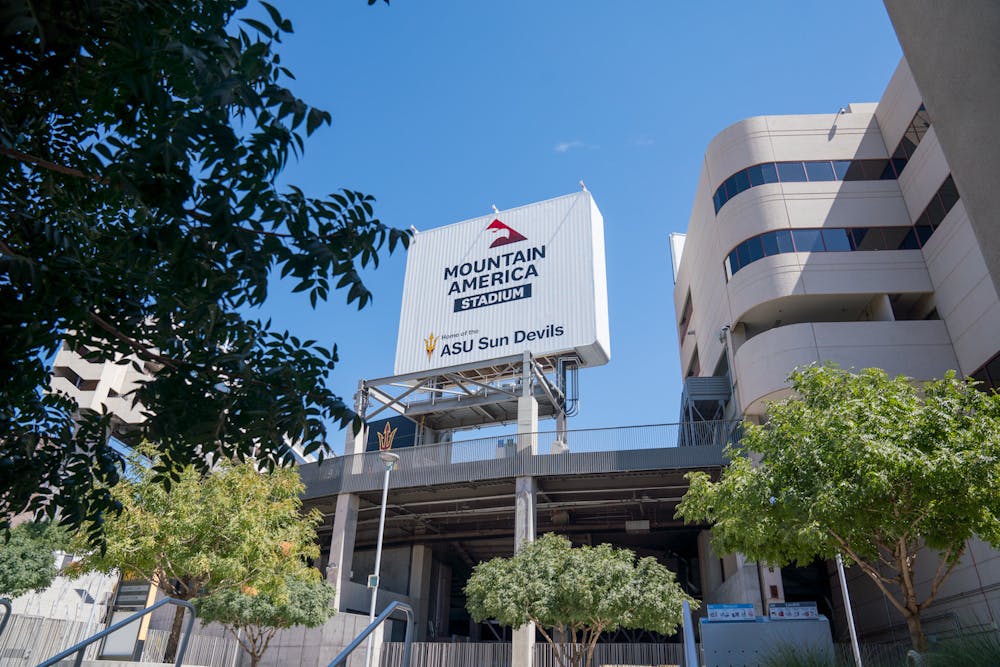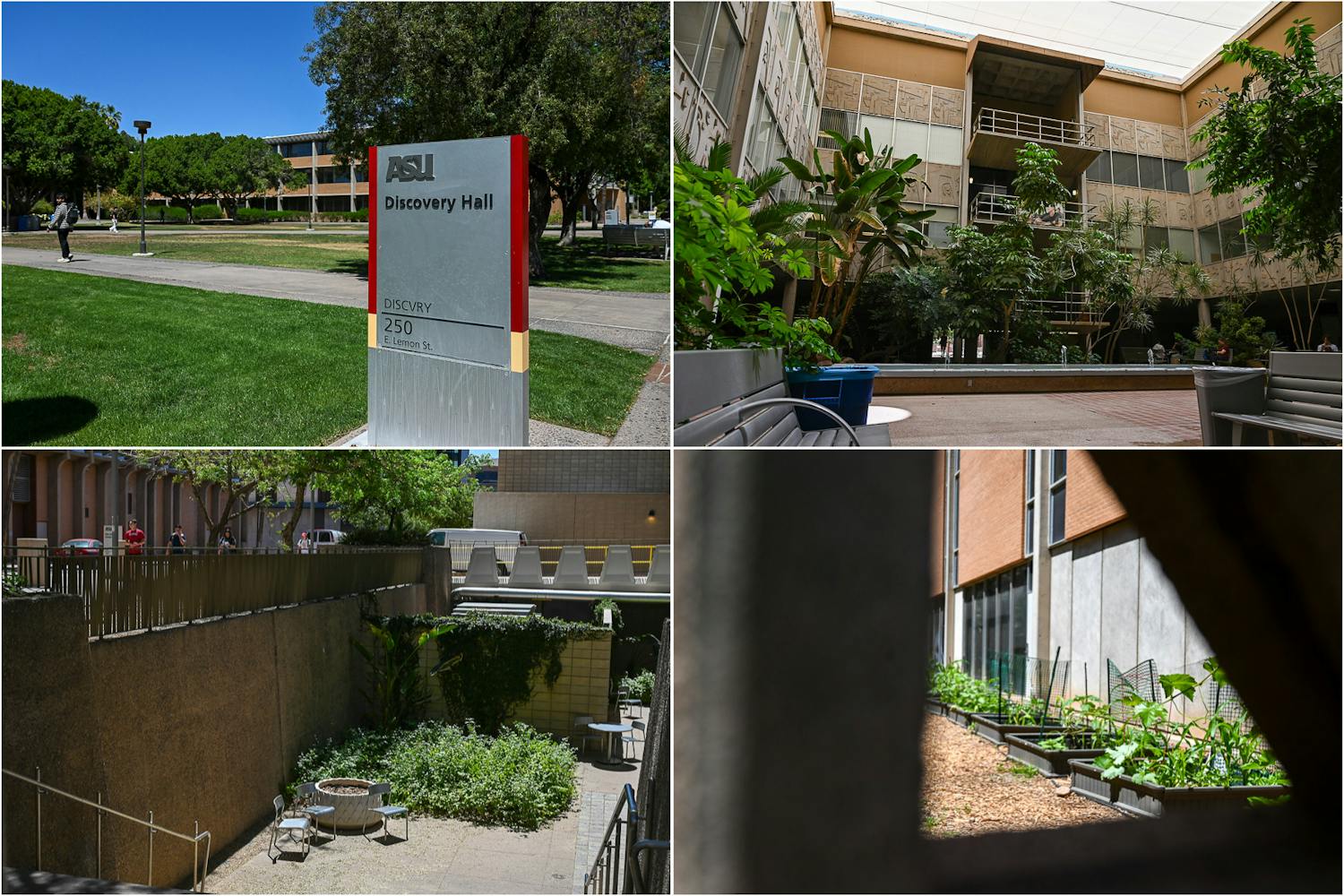The NCAA Division I Committee on Infractions released its public infractions decision regarding COVID-19 dead period violations on Oct. 3. The committee processed violations for the University along with seven former staff members through a negotiated resolution (NR) process.
During the COVID-19 dead period, teams were barred from executing any face-to-face recruiting. However, ASU defied the rules and flew in recruits, conducted tours and planned recruiting outings to destinations including a gun range and a gentlemen's club.
"The COVID dead period rules were created not only for the sake of competitive equity but for the safety and well-being of prospective and enrolled student-athletes and their families," said ASU President Michael Crow in the University's April statement. "ASU is disappointed and embarrassed by the actions of certain former football staff members who took advantage of a global pandemic to hide their behavior."
READ MORE: Breaking: ASU and NCAA reach agreement on football recruiting violations
Former associate head coach and recruiting coordinator Antonio Pierce and former staff member with sport-specific responsibilities Anthony Garnett committed violations and contested their allegations.
Other violating staff members include former head coach Herm Edwards, former assistant coaches Prentice Gill, Chris Hawkins, Zak Hill, Derek Hagan, Rob Rodriguez and equipment manager Eric Bowman.
Edwards, Gill, Hawkins, Hill and the University agreed to the facts, violations and penalties. Hagan, Rodriguez and Bowman were nonparticipating parties to the NR process.
Hagan received a 10-year show-cause order. Pierce, Bowman and Rodriguez were hit with eight years. Garnett, Edwards and Gill received five years. Hawkins received four years and Hill received three years.
The majority of penalties against ASU went into effect from 2022 through the 2024 academic year and many were self-imposed. ASU is also facing four years of probation from April 15, 2024 to April 14, 2028.
Financial penalties include a fine of $5,000, plus 1% of the program's budget, as well as a reduction in scholarships by one for the 2024-2025 academic year.
Both Pierce and Garnett agreed to process their case via a written record hearing. However, Garnett's submission only partially addressed allegations while Pierce failed to present a written submission.
The infraction committee's decision named Pierce as the "central actor" while other staff members held supporting roles.
"Pierce knowingly and blatantly disregarded fundamental dead period legislation to orchestrate the majority of violations in this case," the decision stated. "Pierce's defiance of and indifference to NCAA rules was, in part, motivated by his observation that he needed to maintain an aggressive recruiting presence in order to compete with what he believed other institutions were doing during the dead period."
The decision stated that Pierce had nearly full control over the staff. Gill — who did not interact with Edwards until his second day on the job — felt that Pierce was the real head coach and recalled Edwards telling staff that Pierce was in charge of the roster. Hawkins also identified Pierce as the ringleader and ordered staff members to secure visits with his desired prospects.
"And then once they agreed to come that weekend (the staff member) would just kind of hand him off to (Pierce) and he (would) take care of the rest," Hawkins said in his interview.
Gill also remembered Pierce stating that he would "take the fall" if the NCAA discovered any violations. He also stated that Pierce's readiness to take responsibility was based in his financial security after his NFL career.
Pierce and other staff members provided or arranged meals, lodging, airfare, apparel, local transportation and entertainment expenses to a minimum of 27 prospects. Pierce was responsible for arranging 90% of athlete visits during the dead period, according to Gill.
"The largest visit of the dead period took place from October 9 to 11, 2020, when Pierce and other staff members arranged for at least 10 prospects and their families to visit the institution's locale," the decision stated. "Beginning the first night, Pierce arranged for a prospect and his parents to stay at an off-campus rental residence for two nights at no cost. The following day, Pierce directed recruiting staff members to drive five prospects to a local bowling alley and arcade."
Pierce and Garnett also took the prospects to a gentlemen's club that night. A recruiting staff member said she did not want to go but was told to be the designated driver and "just get in the van and drive" because others were going to drink alcohol.
According to the decision, Edwards knowingly participated in some NCAA rule violations and failed to lead by example. The decision also acknowledged that Edwards was unaware of many of the violations and trusted his staff to follow the rules. For his part, he recognized violations and took responsibility for all conduct during the investigation.
READ MORE: Herm Edwards to take 50% buyout of remaining salary, plus benefits and academic bonus
Gill helped plan and run unsanctioned visits, tryouts and impermissible entertainment. Gill said he violated the rules because he was afraid to lose his first full-time role with the team. The decision stated Gill failed to preserve the integrity of the investigation.
Hawkins also felt obligated to follow Pierce's wishes as a young coach. He took part in unsanctioned visits to Miami and Des Moines with Pierce and Garnett that included a high school workout in Florida and a track meet in Iowa, among other illicit recruiting actions.
Hill participated in recruiting efforts with other staff members including unofficial visits and social outings. Hagan was involved in planning unofficial visits, impermissible tryouts, contacts and tours. He also provided false information during his interview and failed to cooperate with the investigation.
The decision also listed Bowman as providing false information during his interview. The majority of his involvement during dead period violations involved giving recruits free equipment.
Meanwhile, the University originally launched an investigation with enforcement staff in July 2021 after receiving an anonymous report alleging violations in June 2021. However, the decision stated the University failed in its monitoring efforts and violated the NCAA principle of rules compliance.
"The institution's cooperation throughout the investigation and processing of this case was exemplary and the cooperation began with the leadership shown by the institution's president," the decision stated. "The institution's response to the allegations is a model for all institutions to follow."
READ MORE: BREAKING: ASU self-imposing one-year postseason ban on football team
Crow thanked NCAA enforcement staff for its collaboration in the University's original statement. The University did not offer additional comment after the committee's decision went public.
"Regarding the decision by the NCAA Committee on Infractions, ASU reiterates the comments made in its April 19 press release," said a University spokesperson in an email. "The football program has fulfilled all recruiting penalties negotiated in this case."
Edited by Alysa Horton, Sophia Ramirez, Madeline Schmitke and Alexis Heichman.
Reach the reporters at hjsmardo@gmail.com and jcbarron@asu.edu and follow @HenryJSmardo and @jackcbarron on X.
Like The State Press on Facebook and follow @statepress on X.
Jack is a senior studying sports journalism. This is his fourth semester with The State Press. He has also worked at Radio Sucesos and XPR Sport Experience in Argentina.
Henry is a junior studying journalism and mass communication. This is his third semester with The State Press. He has also worked as a sports reporter.




